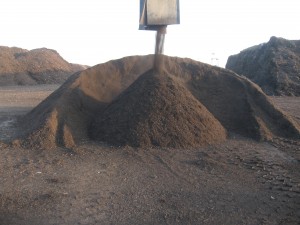 The Benefits of Compost Are Many
The Benefits of Compost Are Many
- Composting reduces greenhouse gases by preventing methane generation in landfills, storing carbon in the compost product, reducing energy use for water pumping, substituting for energy-intensive chemical fertilizers and pesticides, improving the soil’s ability to store carbon, and improving plant growth and thus carbon sequestration.
- Compost encourages the production of beneficial microorganisms, which break down organic matter to create a rich nutrient-filled material called humus.
- Compost is a value-added product with many markets, including land reclamation, silviculture, horticulture, landscaping, and soil erosion control.
- Compost increases the nutrient content in soils.
- Compost helps soils retain moisture.
- Compost reduces the need for chemical fertilizers, pesticides, and fungicides.
- Compost suppresses plant diseases and pests.
- Compost promotes higher yields of agricultural crops.
- Compost helps regenerate poor soils.
- Compost has the ability to clean up (remediate) contaminated soil.
- Compost can help prevent pollution and manage erosion problems.
- Composting extends municipal landfill life by diverting organic materials from landfills.
- Composting sustains at least four times more jobs than landfill or incinerator disposal on a per-ton basis.
- Composting is a proven technology.
- Composting is far cheaper than waste incineration.



